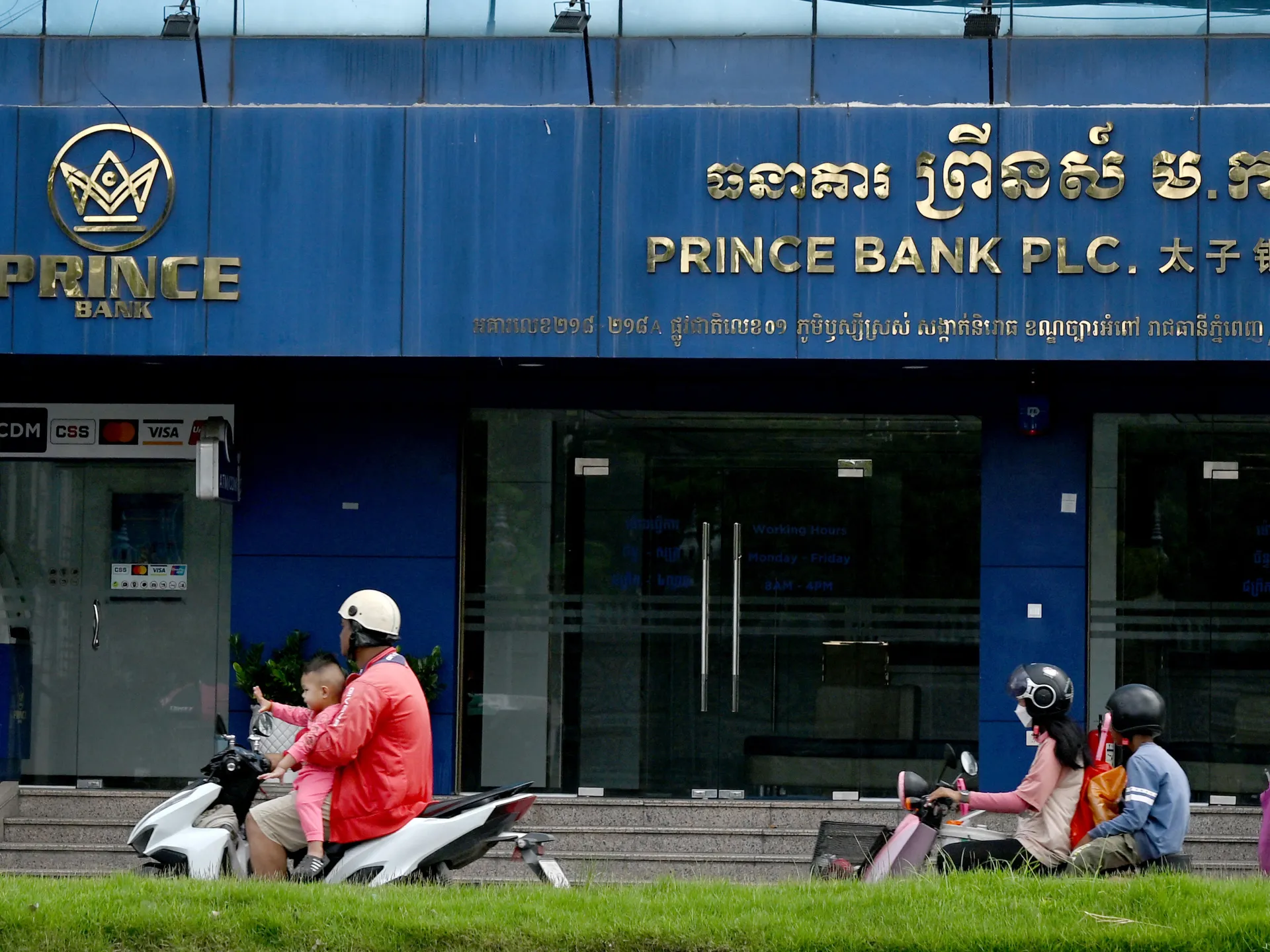U.S. Seizes $14 Billion in Bitcoin and Charges Cambodian Executive in Massive Crypto Scam
U.S. Seizes $14 Billion in Bitcoin and Charges Cambodian Executive in Massive Crypto Scam
By
Leah Rosenfeld
Last updated:
October 16, 2025
First Published:
October 16, 2025

Photo: Al Jazeera
A global cyber fraud empire exposed
In an operation that has stunned the digital asset world, U.S. authorities have seized more than $14 billion in Bitcoin and filed charges against a Cambodian executive believed to be a key player in a vast crypto-based scam network. The case shines a harsh light on the growing phenomenon of online investment schemes that lure victims through romance scams, fake trading platforms, and social engineering tactics collectively known as “pig butchering.”
The anatomy of the scam
According to investigators, the criminal network ran sophisticated investment schemes that impersonated legitimate crypto platforms, convincing thousands of unsuspecting users to transfer funds into fake wallets. Victims were shown fabricated dashboards displaying artificial profits, only to realize later that their assets had been drained and laundered through multiple crypto addresses. The scam’s operators allegedly moved funds across jurisdictions using mixers and cross-chain bridges to conceal their tracks.
The man at the center
Authorities identified a Cambodian national who allegedly directed multiple shell companies tied to the fraud. This executive is accused of coordinating the movement of stolen Bitcoin through offshore accounts and exchanges, some of which may have unwittingly facilitated the transfers. His arrest represents one of the most significant steps taken by U.S. investigators to target international crypto crime leaders rather than lower-level accomplices.
Tracing billions through blockchain forensics
The seizure of $14 billion in Bitcoin was made possible through advanced blockchain analytics. Using forensic tracing tools, law enforcement followed the flow of funds from victims’ wallets through layered laundering pathways. Analysts identified clusters of wallets associated with scam operations that had remained active for years under different digital identities. The recovery stands as one of the largest digital asset seizures in history, underscoring how blockchain transparency can also serve justice.
A wake-up call for exchanges and custodians
The case exposes gaps in exchange compliance and transaction monitoring. Several smaller trading platforms were reportedly used to launder illicit funds before the Bitcoin reached cold storage wallets under the scammer’s control. Regulators are now expected to demand tighter oversight and stricter know-your-customer procedures for crypto service providers, particularly those operating across high-risk jurisdictions.
Victims still face an uphill battle
While the Bitcoin seizure is a milestone, experts warn that returning the stolen funds to victims could take years. The complexity of tracing individual claims, combined with overlapping international laws, creates a bureaucratic labyrinth. Still, the U.S. Department of Justice has indicated its commitment to compensating victims once the legal process concludes, offering some hope to those who lost life savings.
A new era of international collaboration
This case also demonstrates the growing willingness of nations to collaborate on digital crime investigations. U.S., European, and Asian authorities reportedly worked together, pooling intelligence to pinpoint wallets and operators. This cooperative approach may set a new precedent for future transnational crypto investigations, proving that anonymity in blockchain networks is not absolute.
Crypto industry reactions
Leaders within the cryptocurrency sector have applauded the move as necessary to protect the integrity of digital finance. Some, however, warn that such enforcement must be carefully balanced to avoid painting all crypto projects with the same brush. The industry’s legitimate innovators fear that sensational cases may overshadow the transformative potential of blockchain technology.
The future of digital asset policing
With scams evolving in scale and sophistication, regulators are under pressure to modernize investigative tools. Artificial intelligence and on-chain analytics are becoming vital to detecting fraud patterns early. Governments are also exploring partnerships with private cybersecurity firms to monitor suspicious wallet activity in real time, aiming to prevent large-scale financial crimes before they happen.
A pivotal moment for crypto accountability
The $14 billion seizure sends a powerful message: blockchain’s promise of decentralization does not mean immunity from accountability. This crackdown reaffirms that digital assets, though complex, exist within an increasingly regulated financial framework. For legitimate players, it represents a chance to rebuild trust in crypto’s future. For scammers, it is a warning that the era of operating in the shadows is coming to an end.
Popular articles
Subscribe to unlock premium content
Disney’s Timeless Magic and How the Entertainment Giant Continues to Shape Culture and Innovation

Imran Khan’s Economic Missteps Amid Political Chaos in Pakistan

The Philippines’ Digital Shift How Remittances and BPO Are Fueling Growth

Disney’s Timeless Magic and How the Entertainment Giant Continues to Shape Culture and Innovation

Imran Khan’s Economic Missteps Amid Political Chaos in Pakistan

Disney’s Timeless Magic and How the Entertainment Giant Continues to Shape Culture and Innovation









